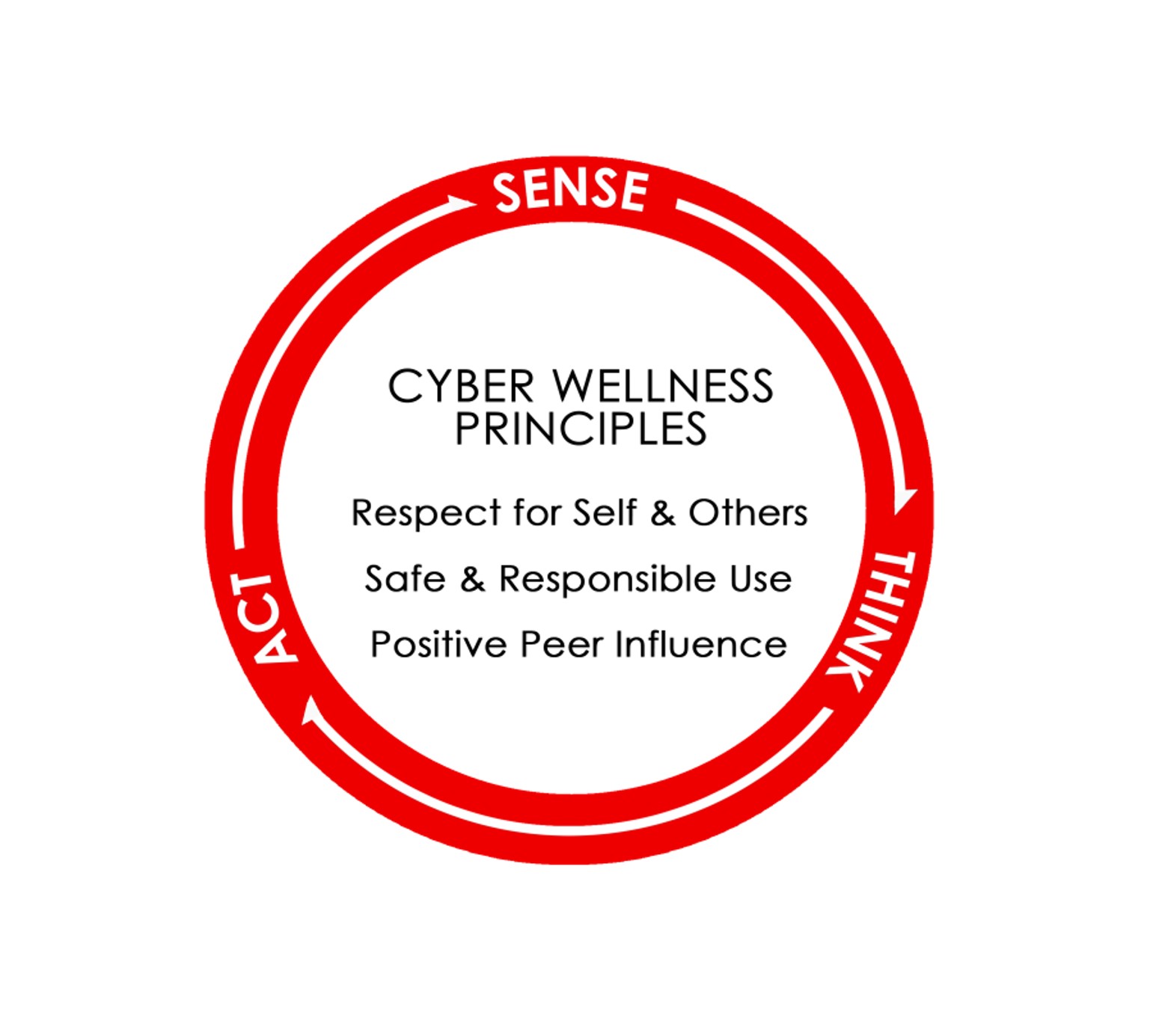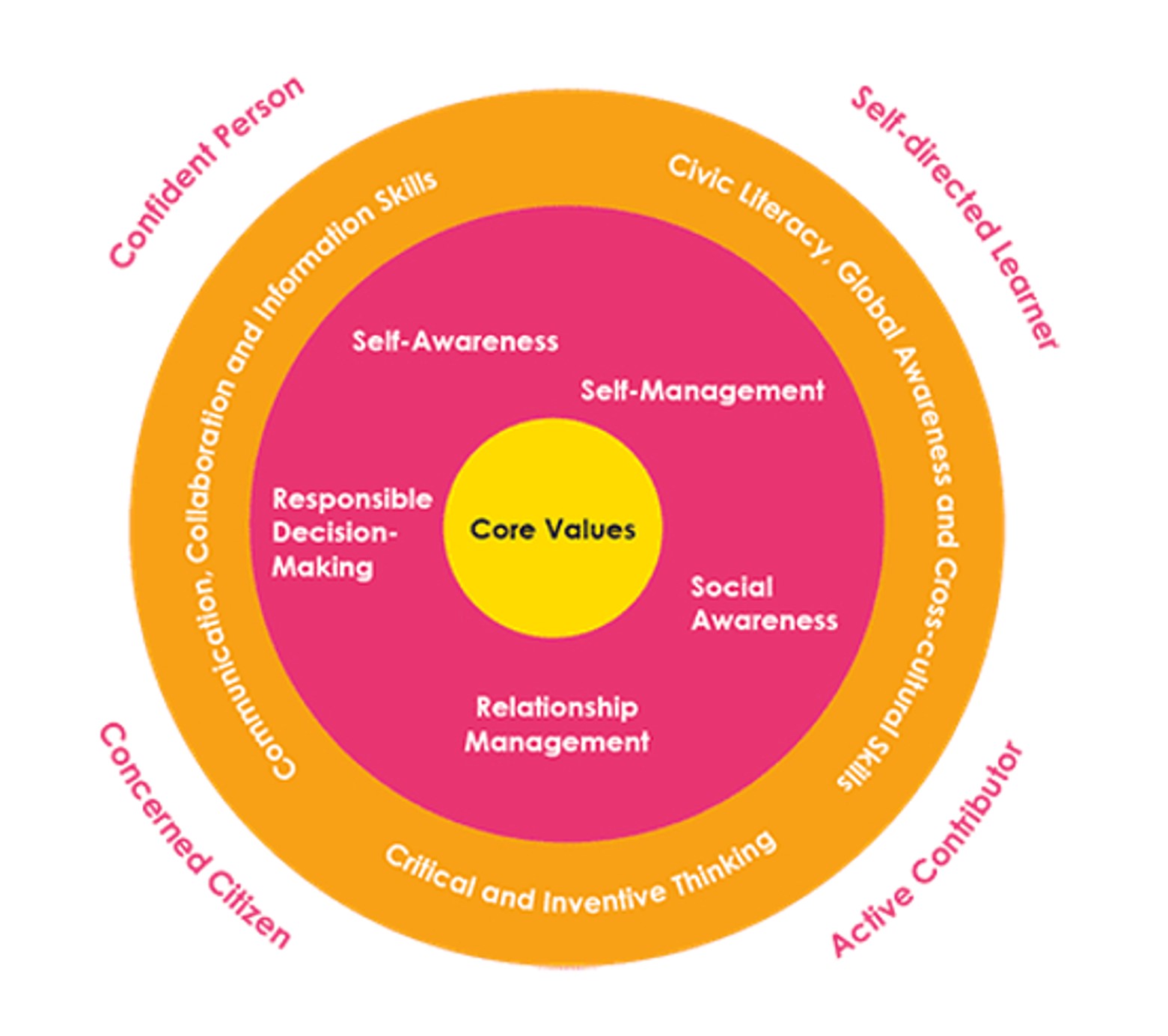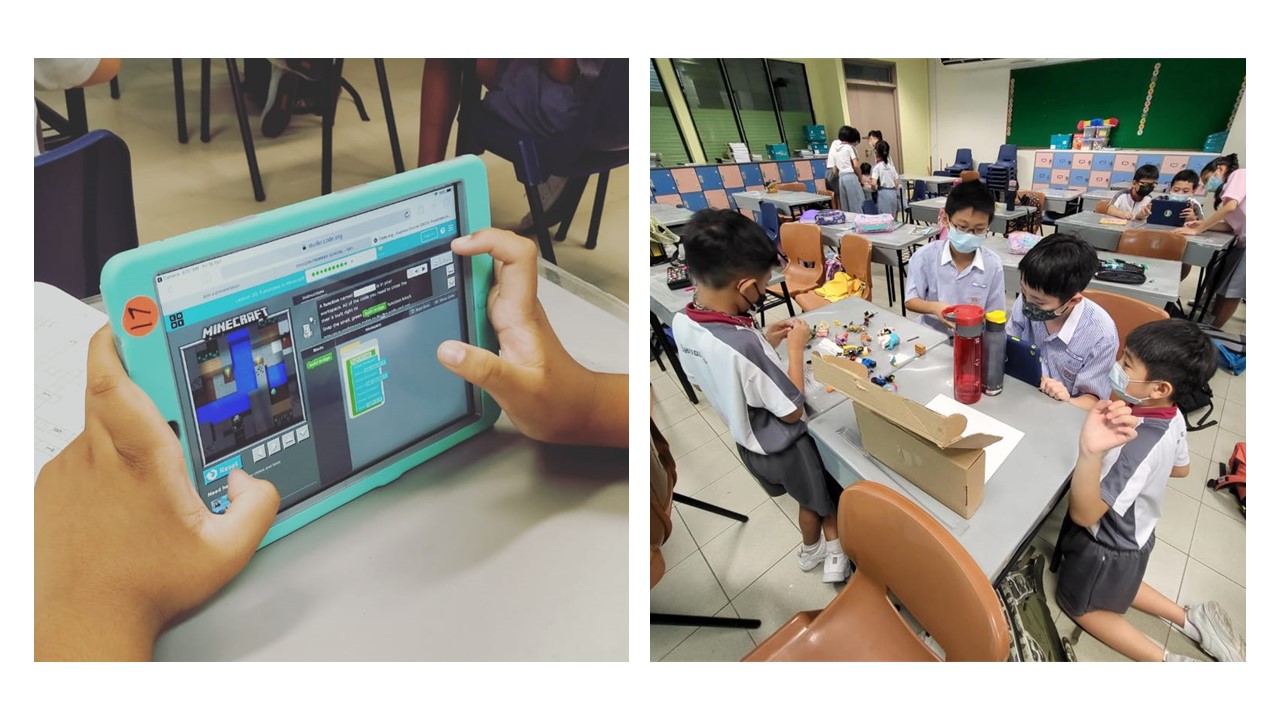Information & Communication Technology
Mission
To develop a conducive environment in teaching and learning for every student and staff to become intelligent and responsible users of ICT.
Desired Outcomes for Students
- Cyber-healthy students who are discerning users of ICT guided by the right values and attitudes.
- Active learners who are able to think critically and problem solve creatively.
- Confident citizens/residents who can contribute and serve the country with a heart.
ICT in Shuqun Primary School
ICT in Teaching and Learning
ICT is integrated across various subjects to engage students and increase efficacy so that students can deepen learning and go through meaningful learning experiences.
ICT baseline skills needed to enable these ICT integrated lessons are embedded in the curriculum through various ways e.g. SLS lessons, ICT tips and quizzes, face-to-face lessons and so on, for the different levels. The progressive skill sets for the levels are chosen to suit the students’ ability and level of readiness.
To help our lower primary students acclimatize to primary school and acquire the necessary ICT skills, we have customized programmes like touch-typing (English Language) and iPad trail (Mother Tongue Languages) to kick-start their learning journey in Shuqun.
To allow the students to have more opportunities to further hone their ICT skills, the school has also arranged for fun filled activities outside the classroom. For example, students can test their typing skills by competing with each other through the touch-typing competitions. During the PSLE period, students get to encourage and show care to their graduating seniors/peers by sending their well-wishes through a common platform linked by SLS. They can use various ICT skills learnt from enrichment programmes to either record videos, design e-cards or simply type messages and posting them in SLS.

Cyber Wellness Education

Cyber Wellness (CW) refers to the positive well-being of Internet users. It involves an understanding of online behavior and awareness of how to protect oneself in the online space. The focus of CW is to help students to become safe and responsible digital learners. It is important for students to be equipped with the knowledge, skills, values and attitudes to demonstrate respect for self and others, and to practice safe and responsible use. Students should also be a positive peer influence and harness the power of technology for the good of the community. The CW framework shown above guides schools in planning for an inclusive programme to ensure students become intelligent and responsible users of ICT.
Cyber Wellness Student Ambassadors (CWSA)
To help champion our Cyber Wellness efforts, CWSA undergo a series of training by our CW teachers to equip them with the necessary CW and leadership skills. The CWSA are expected to harness what they have learnt and positively influence their peers in school, carry out duties at CW/ICT events and share presentations on current CW issues during Student Teacher Contact Time (STCT). Together with their CW teachers, the CWSA also produces CW videos to share useful CW tips.
Cyber Wellness for Students
Various platforms are provided for students to acquire and apply their CW skills :
- FTGP lessons
- Termly CW lessons (STCT)
- Assemblies (differentiated)
- Safer Internet Day
Cyber Wellness for Parents
We believe that “it takes a village to raise a child”. We believe in working with parents to further strengthen the CW issues taught in school. Parents are updated on the various CW issues via SPEC, a sharing from various departments, conducted yearly or through term letters. The school website also has useful links for parents to find out more about any relevant CW or ICT concerns that they might have.

Enrichment Programmes
As stated by MOE, the following competencies are necessary for the globalised world we live in:
- Civic Literacy, Global Awareness and Cross-Cultural Skills
- Critical and Inventive Thinking
- Communication, Collaboration and Information Skills
These competencies together with the core values listed below will help our students capitalise on the rich opportunities of the digital age.

On top of what is carried out in the curriculum, different enrichment programmes run by carefully sourced vendors, are curated for students to further develop students’ 21st Century Competencies Skills.
Stop Motion (P4)
The 7.5-hour programme aims to develop critical thinking skills through storyboarding, props design and creation, stop motion animation and video editing.
Google Classroom (P5)
The 6-hour programme aims to enhance students’ knowledge on the features of productivity tools such as Google Docs, Google Sheets, Google Slides, Google Forms and Google Jamboard through collaboration.
Code for Fun (P6)
The 10-hour programme aims to cover fundamentals of computational thinking and exposure to emerging technologies. Students develop critical and inventive thinking skills through this programme.


